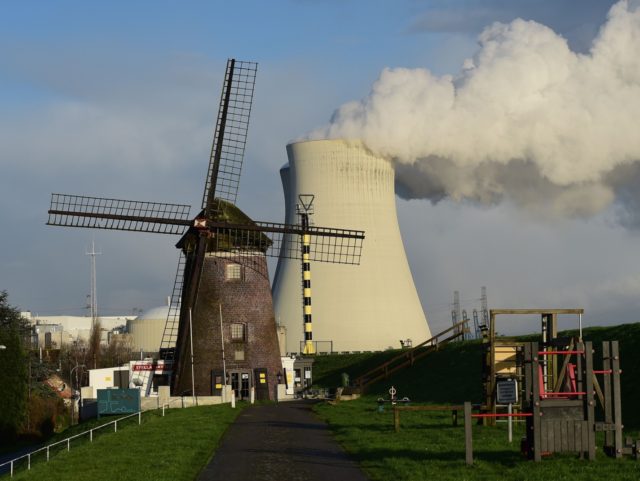Belgium has delayed killing off its use of nuclear power generation over what it called a “chaotic geopolitical environment”.
Nuclear power is to continue powering Belgian homes and businesses for years to come after the country announced that it will be delaying its phase-out of the energy source by at least a decade.
Having initially planned to get rid of the power source by 2025, the country is now going so far as to look at expanding its nuclear capabilities with small modular nuclear reactors.
According to a press release put out by the Belgian government, the life of two of the country’s nuclear power plants is going to be extended by a decade.
“The federal government has decided to take the necessary steps to extend the life of two nuclear reactors by ten years,” the press release reads.
“This extension should make it possible to strengthen the independence of our country vis-à-vis fossil fuels in a chaotic geopolitical context,” it continues.
“The federal government finally reaffirms its interest in small modular nuclear reactors (SMR).”
Also promised by the government is an expansion of renewable energy within Belgium in the hopes of boosting the country’s independence from fossil fuels, and that nuclear power generation will not crowd out the market at the expense of other methods of power generation.
“The agreement reached provides that the extension of the two nuclear power plants should not crowd out the production of renewable electricity from the market,” the press release reads regarding the matter.
“In the event of overproduction, nuclear power plants can therefore also be used to launch the hydrogen market in Belgium.”
Germany Ignores Looming Energy Crisis, to Close All Nuclear Power Plants https://t.co/kAFTPsILJD
— Breitbart London (@BreitbartLondon) March 10, 2022
Belgium’s decision to U-turn on its decision to kill off nuclear energy stands in stark contrast with a decision by Germany’s leftist coalition government to move forward with decommissioning its few remaining nuclear plants.
While both nations have committed themselves to moving away from fossil fuels — seemingly now as a way of reducing reliance on Russian energy sources rather than just to help the climate — Germany has opted to kill off its nuclear programme, which is due to completely wrap up by the end of this year.
This is despite the country having one of the worst addictions to Russian natural gas across the European Union, getting 55 per cent of its gas supply from Ukraine’s invaders.
“As a result of weighing up the benefits and risks, an extension of the operating lives of the three remaining nuclear power plants is not recommended, also in view of the current gas crisis,” a report by two German government ministries read regarding potentially delaying the closure of plants, both of which are headed up an anti-nuclear Green Party politician.
Instead, Germany has opted to rely on Liquified Natural Gas (LNG) to support its shift to green energy, despite the power source becoming ever more expensive under increased demand partially caused by the ongoing Ukraine crisis.
What’s more, despite being hailed as a potential solution to Germany’s reliance on Russian gas, the Federal Republic at the moment has no way of taking delivery of any LNG shipped to the country, lacking the necessary facilities to land and process the fuel.
Perhaps authorities in the country have begun to doubt the LNG plan however, with the government recently announcing that it was looking at either re-opening or delaying the closure of existing coal fire power plants in the hopes of mitigating the energy crisis.
“It’s not a backwards roll, but at most a step aside for a limited time,” said the head of one energy company regarding the move, promising that Germany was not looking at reversing its move to green energy.
Green Agenda: Minister Ignores Ukraine Food Crisis Warnings in Favour of Solving ‘Nature Emergency’https://t.co/J2tbJCOZEI
— Breitbart London (@BreitbartLondon) March 14, 2022

COMMENTS
Please let us know if you're having issues with commenting.